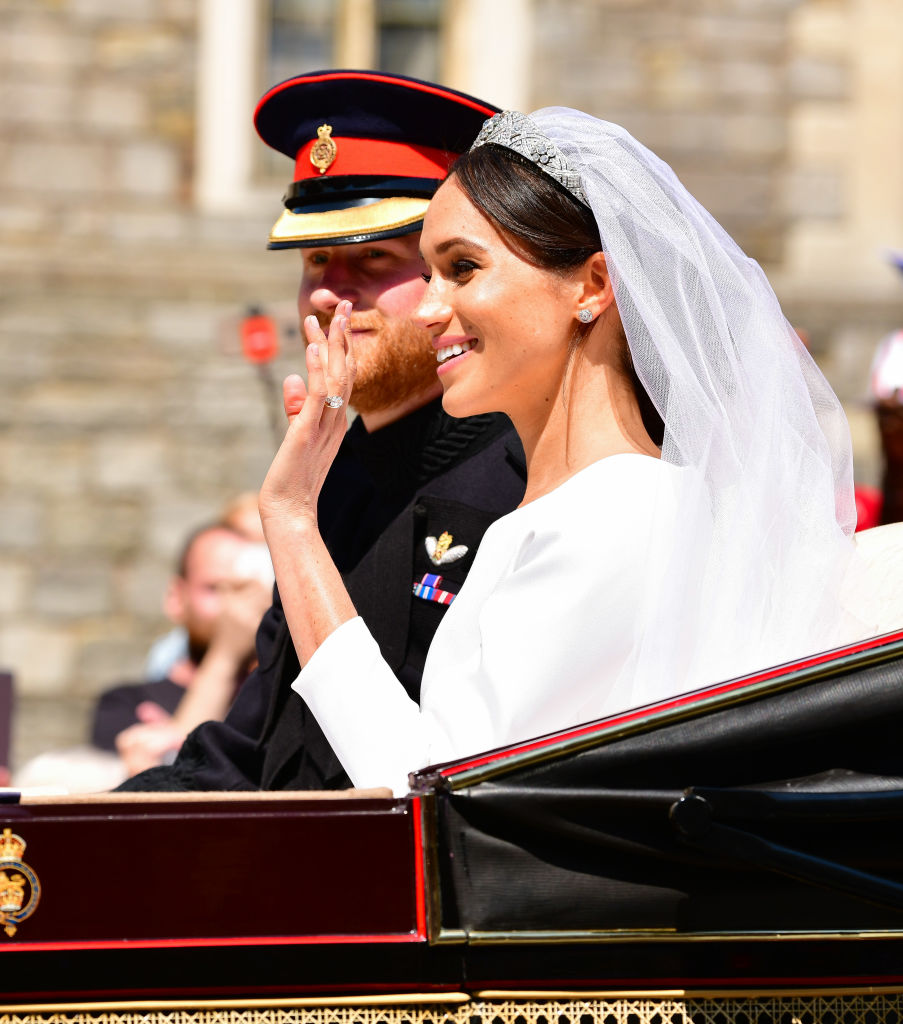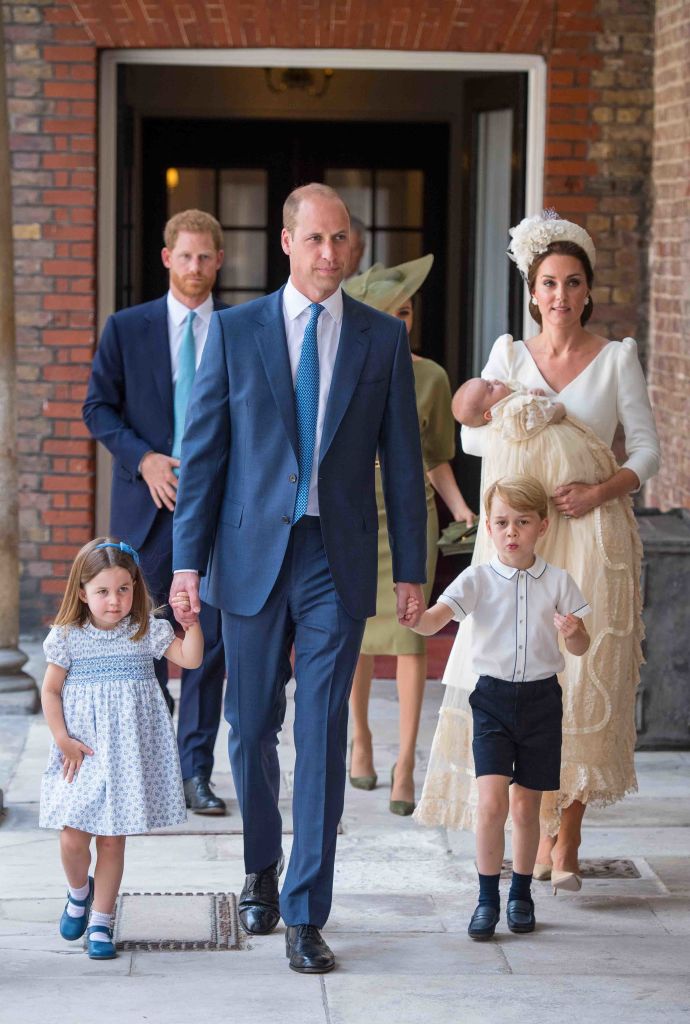Meghan, Duchess of Sussex and Prince Harry announced the name of their baby boy, Archie Harrison Mountbatten-Windsor, just two days after Meghan Markle gave birth. The news of the baby’s last name differs somewhat in comparison to other young royals like Prince George because Archie will carry the royal family’s last name—Mountbatten-Windsor.
As Prince Harry’s first-born son, Archie should receive the title Earl of Dumbarton, one of Prince Harry’s subsidiary titles. But as of Wednesday, the royal family announced his name without an affixed title, indicating that the Duke and Duchess wish for him to have a more normal and private life, Marlene Koenig, an author and expert on British and European royalty, explains.
Still, any of Archie’s future siblings could be known as Lady or Lord — if the parents so choose — and will have the surname Mountbatten-Windsor.
Why will Prince Harry and Meghan Markle’s children have last names?
Archie’s last name stems back to King George V, who in 1917 issued a Letters Patent that would limit the use of royal titles only to the children and grandchildren of the sovereign (in the male line) and the eldest son of the eldest son of the heir. Under that ruling, only male great-grandchildren of Queen Elizabeth II would be called Prince or Princess, and referred to as His or Her Royal Highness (HRH). Typically, those with HRH titles do use a last name, though they can go by the name of their father’s title like Cambridge or Wales.
Today, that 1917 ordinance would end with Prince George, who is the eldest son of the sovereign’s grandson. The Queen made an exception in 2013 to extend royal titles to George’s siblings, but an exception is less likely to be made for Archie, who is seventh in line for the throne.
Archie will use the surname Mountbatten-Windsor, which has been the royal family’s surname since Queen Elizabeth II’s coronation. While the royal family was known as Windsor when Elizabeth was born, she decreed in 1960 (after taking the throne in 1952) that her descendants would take the hyphenated Mountbatten-Windsor last name—to incorporate her new husband Prince Philip’s Mountbatten family surname.
“What happens is Mountbatten-Windsor is used by the members of the family who don’t have a technical surname when a surname is required,” explains Victoria Arbiter, a royal expert and commentator for CNN.
As for any of Archie’s younger siblings, they would carry a Lord or Lady title, similar to the children of Prince Edward and Sophie, Countess of Wessex. Their daughter is Lady Louise and their son is James, Viscount Severn, taking on one of his father’s subsidiary titles, but they use Mountbatten-Windsor for official and legal purposes.

Why is it different for Princess Charlotte and Prince Louis?
Prince William’s two younger children — Princess Charlotte and Prince Louis — carry their prince and princess titles because of changes made in 2013. First, the Succession to the Crown Act of 2013 removed any effect of gender on the order of succession. This prevented younger brothers from “leap-frogging” over older sisters, Arbiter says.
The Queen then amended her great-grandfather’s 1917 decree with a new Letters Patent so that William and Catherine, Duchess of Cambridge’s children would have HRH royal titles attached to their names. In practice, it gave all three of the Cambridge children, rather than just his first son, Prince George, HRH titles. “It was really just to make sure that had a daughter been born first, she wasn’t out-ranked by a younger-born brother,” Arbiter says.

Still, the gender of this royal baby does influence his name. Whether or not the Duke and Duchess want Archie’s name styled as an Earl, he still carries that Earldom of Dumbarton. But had Harry and Meghan had a girl, she would be known as Lady, followed by her name, Mountbatten-Windsor.
If confirmed, it’s not surprising that Harry and Meghan seem to have chosen to keep their son out of the royal spotlight with a normal last name and no Earldom. “Harry and Meghan have been very keen to promote this idea that they want absolute privacy for their child,” Arbiter told TIME previously. “It’s much easier to have a private life without a title.”
At the end of the day, his title doesn’t matter too much because it’s almost definite that Archie will never be King. But it’s important to remember that the royal baby’s lack of an HRH title is not representative of his status or importance, Arbiter stresses, but rather a continuation of centuries-old tradition. “History is dictating how this unfolds,” she says.
More Must-Reads from TIME
- Donald Trump Is TIME's 2024 Person of the Year
- Why We Chose Trump as Person of the Year
- Is Intermittent Fasting Good or Bad for You?
- The 100 Must-Read Books of 2024
- The 20 Best Christmas TV Episodes
- Column: If Optimism Feels Ridiculous Now, Try Hope
- The Future of Climate Action Is Trade Policy
- Merle Bombardieri Is Helping People Make the Baby Decision
Write to Rachel E. Greenspan at rachel.greenspan@time.com